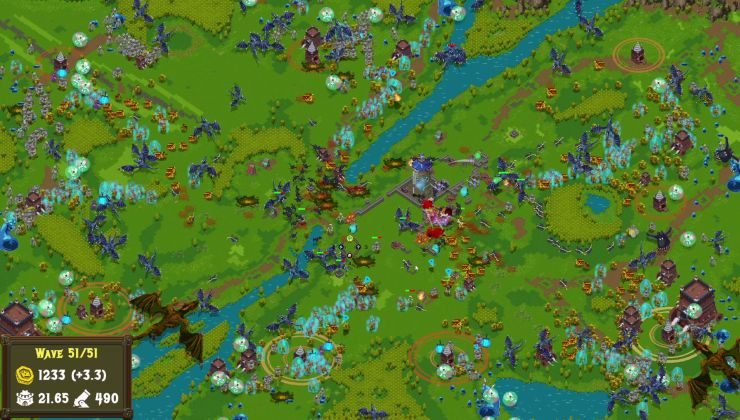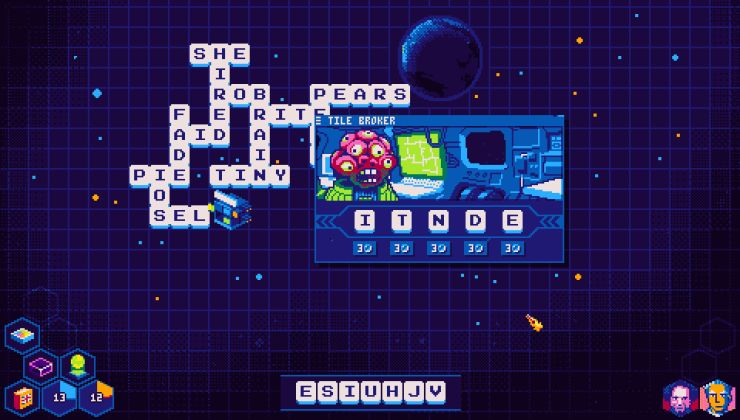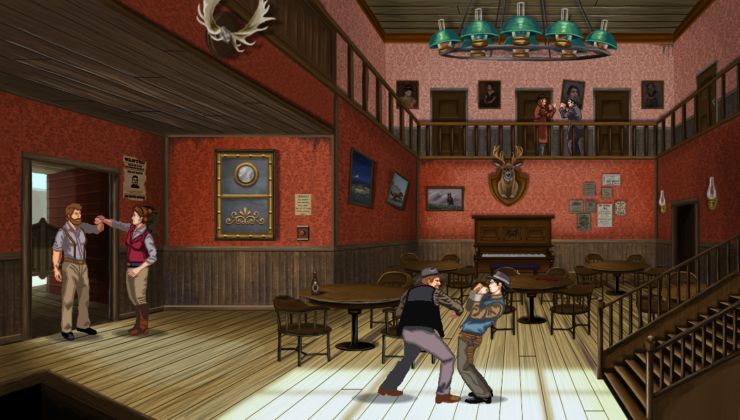Return to Part 1: Dumpster Diving
Continued from Part 16: We Are All Doomed
While first person shooters dominated the Linux gaming scene in the late 1990s and early 2000s, there was still more than a place for the venerable strategy genre; it should be remembered that the first game Loki Software ported over to Linux was the then latest iteration in the Civilization series. From this foundation other strategy titles soon followed, with Ubi Soft entering the fray thanks to the work of Linux friendly Philos Laboratories.
Theocracy is a mix of real time and turn based strategy that sees you leading an Aztec tribe in the century leading up to the arrival of Hernán Cortés, with the ultimate goal being an alternate history scenario where the Aztecs are able to fend off the Spanish conquistadors. Beyond this the game is fantastical, inventing tribes, magical sects, fabled heroes, and featuring a whole host of fauna alien to Mesoamerica, including dragons, llamas, chickens, and the most inaccurate, pigs.
The game overall has an admirable depth of well crafted lore only brought down by the Hungarian developer's occasional lapse into broken English; the worst offender being the use of the word "Wary" to mean belligerent in the Diplomacy Panel. The narrator for the tutorial and scenario briefings also has a way with words that can be at best described as memorable, with his use of the phrase "llama masters can be educated in the llama lair" being a particular earworm.
Unlike with games from Loki Software or similar porting houses, Philos Laboratories bundled the Linux version alongside the Windows retail release, making Theocracy that much easier to track down. On the first CD-ROM you can find a directory containing a text based linux.inst installer, which sets the file paths and copies over the relevant data files. From there the game can be ran using the /usr/games/theocracy binary as long as the second disc is mounted.
The Linux version demands the game be launched at 16 bit colour depth and shows at a fixed 800x600 resolution, either in windowed mode or borderless fullscreen. Cutscenes meanwhile are displayed at 640x480 without any kind of scaling. The option for grabbing the mouse inside the game window only applies while in Province View, and I was unable to have the game recognize the keyboard from Blackbox, forcing me to play Theocracy from Gnome instead.
Released in March 2000 with a historical theme and similar art style, Theocracy was most often compared to and was largely overshadowed by Age of Empires, even though they are very different games. In terms of my tactics I actually found more in common with Infinity Engine titles such as Baldur's Gate and Icewind Dale, with the emphasis on choke points, crowd control, magical buffing, experience leveling, and war party formation while in combat.
I do not think I ever won a battle by outnumbering the opposing army; instead, most of my success came from causing the enemy troops to trip over themselves, often aided by the game's ropy path finding. The sheer scale of the rival forces and the lack of difficulty modes make Theocracy more intimidating than it needs to be, but with effort I was able to defeat both the Iztahuacans and Teotitlans in 30 years in-game and had a close to clear run to the Spanish.
In the end it was not the game's difficulty that felled me, but an unfortunate bug. Upon exceeding 52 saved games from the same campaign Theocracy will start corrupting your save files, a laughable ceiling given how much trial and error is required to progress through the game. Some have reported being able to get past this point by correcting the number overflows in the save file using a hex editor, but I have not managed this feat myself at the time of writing.
Apart from this though Theocracy only froze for me once, although the performance at times left something to be desired. Despite the boast on the back of the box of "an amazing game engine" that can display "up to 50000 units on the screen without any slowdown", the game would still lag even with my hardware exceeding the recommended specifications. This was even worse under Windows 98, with the Linux version running noticeably smoother.
All of these things can make Theocracy feel as if it has been lost to time, much like the Aztecs themselves. There has been some success in getting the game running in a dedicated X session on later versions of Linux, but few games benefit from having access to retro hardware as much as this. I still have unfinished business with Theocracy, and I am not waving the white flag just yet, but for now I am in the mood for something lighter, and much less time consuming.
Carrying on in Part 18: Run Away and Join the Circus
Return to Part 1: Dumpster Diving
http://mrsneeze.com/games/reviews/theocracy/index.html
And more information on the corrupted saved game issue can be read here:
https://www.neoseeker.com/forums/6456/t1748995-load-error-768/
I was expecting a review of Llamatron ;-)Ha, well, if we are looking for Linux releases of games from 8/16 bit computers, perhaps the next instalment will not disappoint.
I was expecting a review of Llamatron ;-)Ha, well, if we are looking for Linux releases of games from 8/16 bit computers, perhaps the next instalment will not disappoint.
I eagerly await the next chapter :-)
Linux kind of requires an MMU, which very few 8 or 16 bit systems supported. 68030 or 386 required, right?I was expecting a review of Llamatron ;-)Ha, well, if we are looking for Linux releases of games from 8/16 bit computers, perhaps the next instalment will not disappoint.
I should fire up llamatron on my Jaguar again...
Any trouble with getting a 16bit X server to fire up? 8 and 16bit windows are something I'm surprised hasn't been emulated more properly for those games which need it.Actually on Dianoga I typically keep it at 16 bit colour depth as 3D games seem bound to the X server colour depth as opposed to their own in-game settings, and I do not want the performance overhead most of the time.
As for 14 North Chilean Guanacos, I am afraid I had to look that up...
Another review of the game on Linux can be found here:
http://mrsneeze.com/games/reviews/theocracy/index.html
And more information on the corrupted saved game issue can be read here:
https://www.neoseeker.com/forums/6456/t1748995-load-error-768/
Thank you for the article.
I don't have this game, but it's still on my list.
I'm not sure if you saw it.
There are some excellent instructions with tricks for the Linux verion of this games, and even a patch. These instructions are in German, but you can use the Google translate:
https://www.gameswelt.de/theocracy/tipp/theocracy-linux-guide-111911
https://wiki.ubuntuusers.de/Archiv/Spiele/Theocracy/
https://holarse.de/wiki/theocracy
Last edited by gbudny on 21 Jun 2022 at 2:08 pm UTC
Damn, this game is available nowhere. Go boost the GOG's wishlist!I couldn't even find it when it was released... at least not the Linux version.
Gog is dead to me until they can fix their crap though :P Why are their games DRM-Free, but only if you use the data where they want you to? https://zeropointdevelopment.com/how-to-use-a-bash-script-to-restart-linux-server-services/
If performance is a problem, what prevents you from using virtual machines?With this game not all that much since it is not hardware accelerated, but that would be missing the point of the whole endeavour in this case. It is also not like the lags ever made much of a difference when playing the game, just that it was not as speedy on real hardware as the marketing copy promised.










 How to install GE-Proton on Steam Deck, SteamOS, Linux
How to install GE-Proton on Steam Deck, SteamOS, Linux An idiots guide to setting up Minecraft on Steam Deck / SteamOS with controller support
An idiots guide to setting up Minecraft on Steam Deck / SteamOS with controller support
See more from me